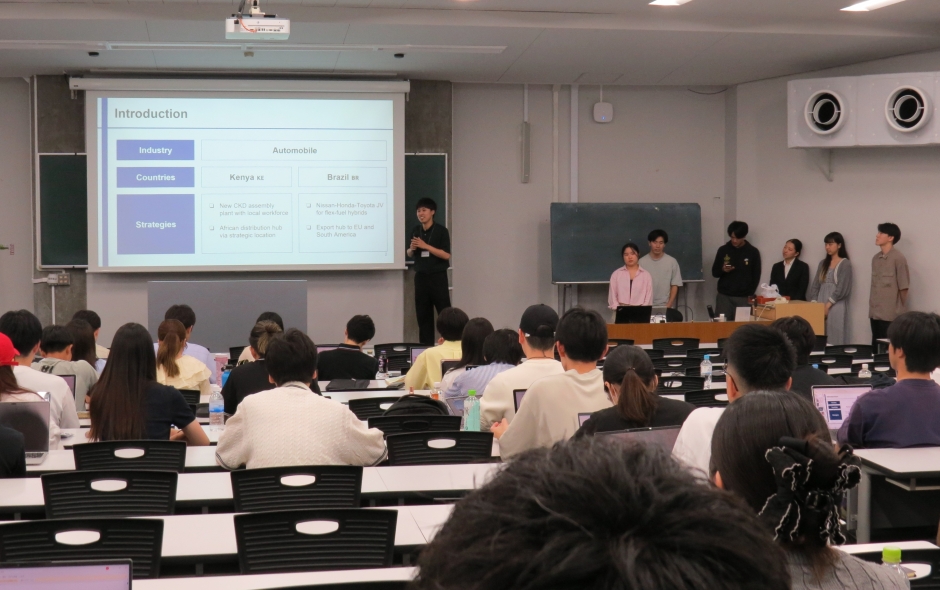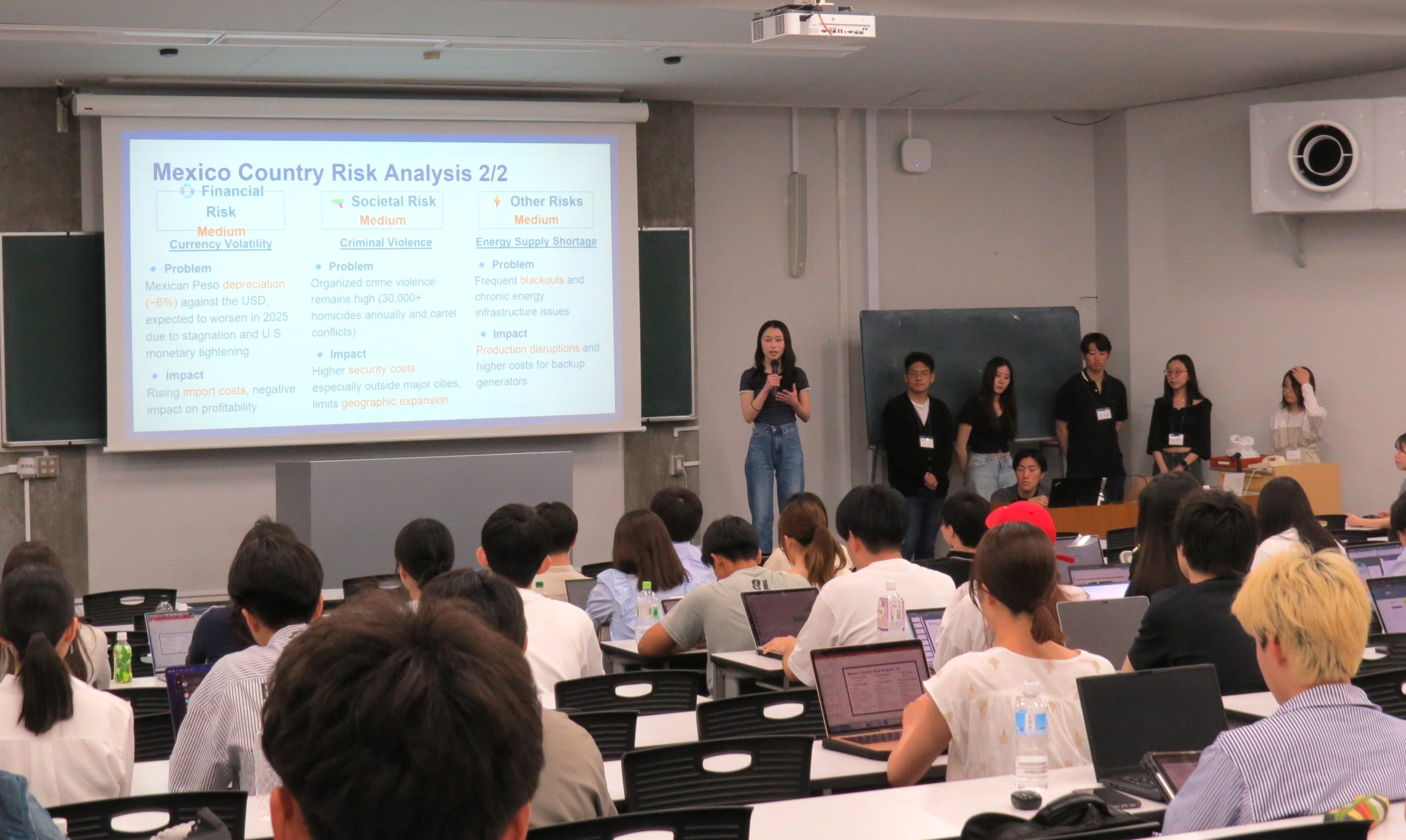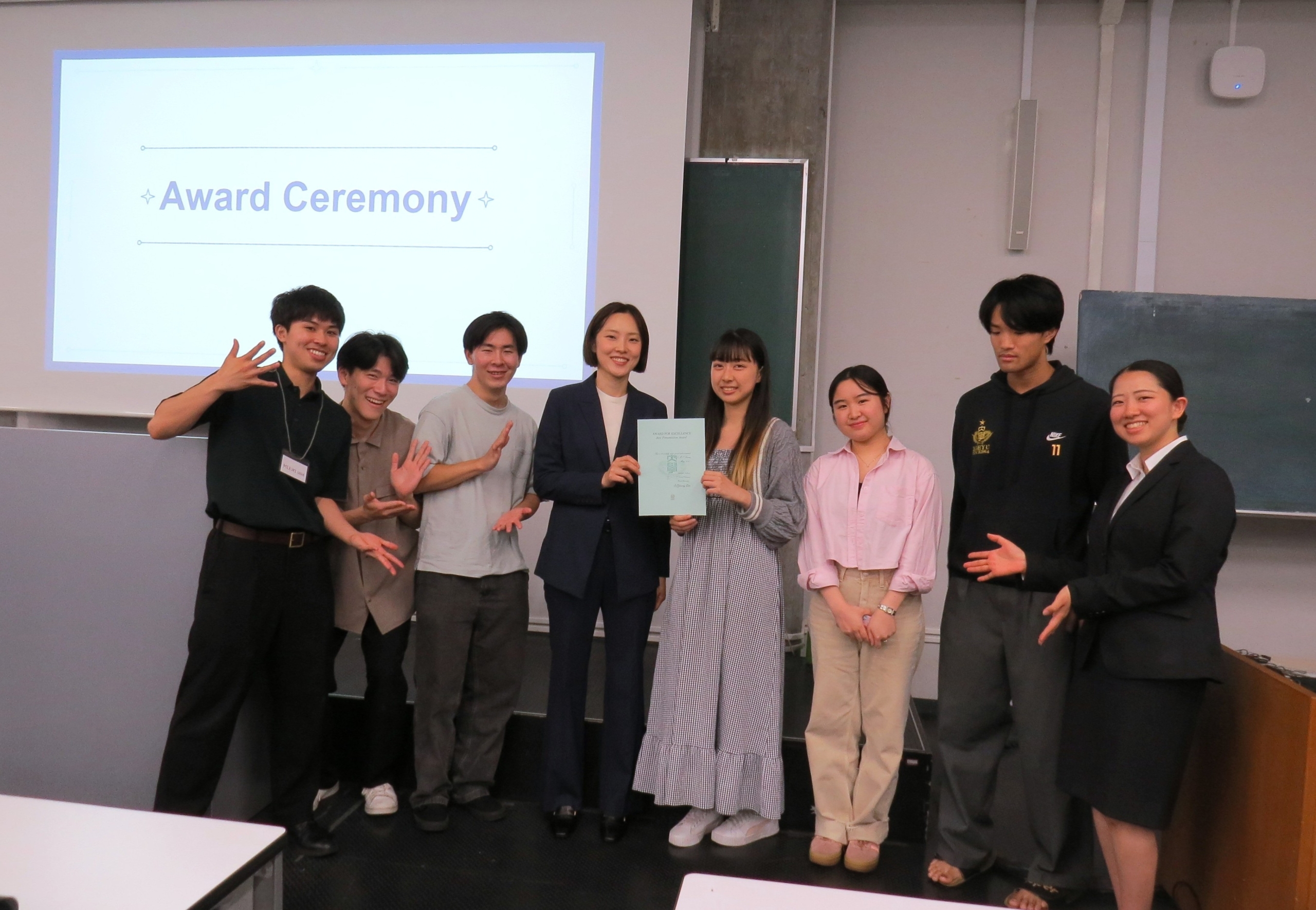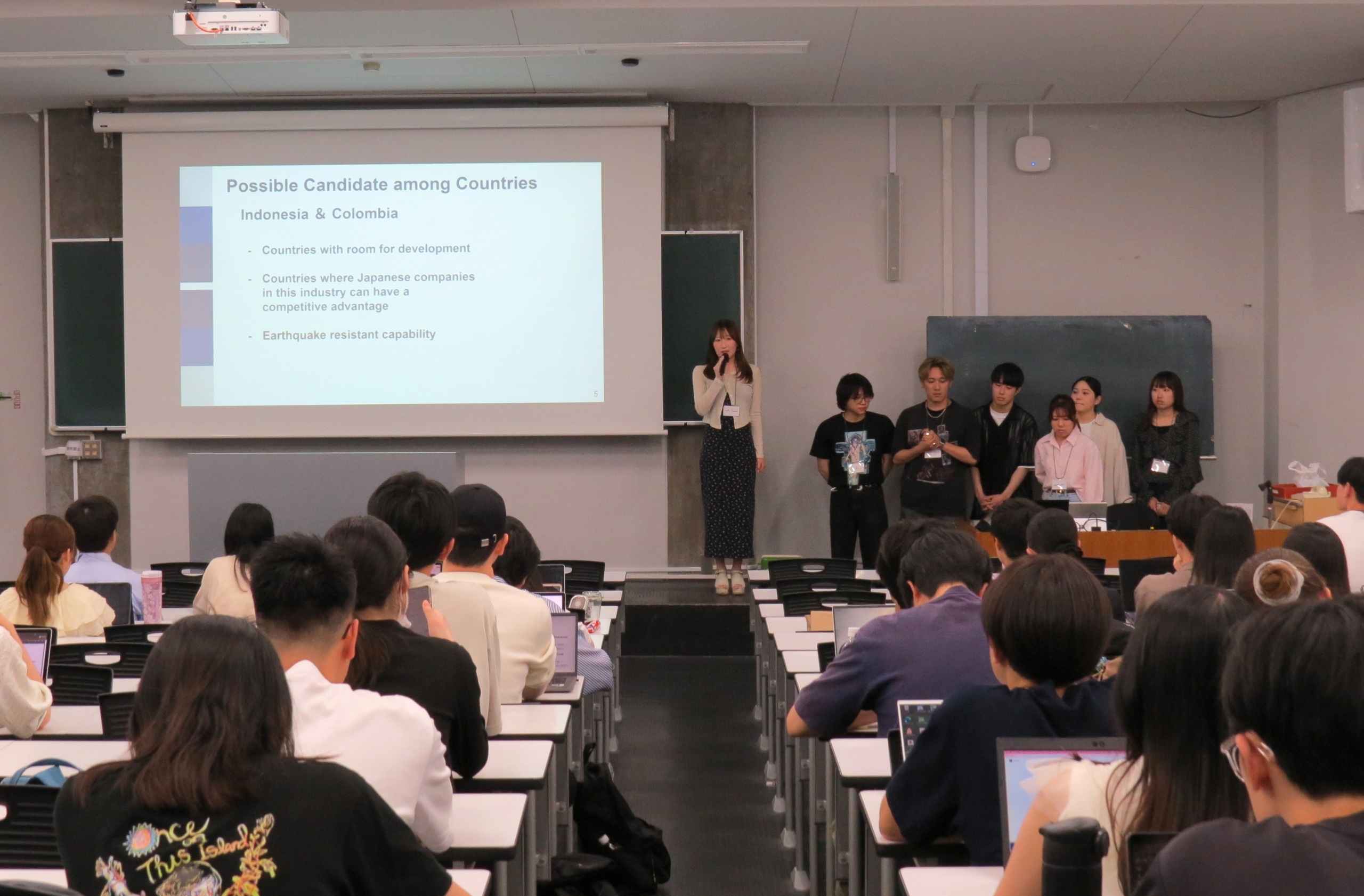- News
- Second GMP Forum of 2025 Highlights Strategic Risk Management in Emerging Markets
Second GMP Forum of 2025 Highlights Strategic Risk Management in Emerging Markets

- Posted
- Tue, 15 Jul 2025
The second GMP Forum of the 2025 academic year took place on Tuesday, May 20, in Classroom 15-201. The event brought together GMP students from various zemi groups, who formed 16 teams to participate in an internal case competition. This forum challenged teams to take on the role of corporate risk management specialists and develop strategic proposals for companies considering entry into emerging markets.
For the preliminary assignment (Scenario 1), each team selected an industry sector, such as IT, automotive, infrastructure, consumer goods, or finance, and chose at least two emerging countries to analyze. They were tasked with conducting a multifaceted assessment of the competitive advantages and risk factors in each selected market. In addition to examining political, economic, and natural disaster risks, teams also drew on past success and failure cases to develop industry-appropriate market entry strategies, which they presented as a team in video format and submitted for preliminary evaluation.
Based on the review by Professor Lim Soyoung, who led the session, four of the 16 teams were selected to present at the main forum. They were notified one week in advance and went on to refine their final proposals by integrating their Scenario 1 analysis with the additional task outlined in Scenario 2.
 A Presentation at the Main Forum
A Presentation at the Main Forum
In Scenario 2, the presenting teams were tasked with formulating risk management strategies (covering both risk control and risk financing) that companies should adopt when entering emerging markets, using pre-provided country-specific risk analyses and past case studies. Building on the content of both Scenarios 1 and 2, each team developed a more comprehensive and practical strategic proposal, which they presented at the forum. Although organizing key points and translating them into concrete strategies within a limited timeframe was challenging, all teams demonstrated strong focus and teamwork, delivering proposals that were both practical and rich in diverse perspectives.
Following the presentations, an engaging Q&A session took place, led primarily by students from the non-presenting teams, who posed sharp, thought-provoking questions. Each presenting team had to respond on the spot within a limited time, explaining the rationale behind their strategies and how they would address unexpected risks. The session required not only quick thinking but also flexibility and strong critical reasoning.
To conclude, Professor Lim offered comments and comprehensive feedback, highlighting key takeaways for future learning. The forum closed with the announcement of three awards: Best Presentation, Outstanding Presentation, and Best Question, accompanied by enthusiastic applause from the audience. Overall, the forum provided more than just an opportunity to present; it served as a valuable hands-on experience that challenged participants to tackle a practical and fundamental question: How can we develop strategy in an uncertain environment?
 Team Awarded the Best Presentation Award with Professor Lim
Team Awarded the Best Presentation Award with Professor Lim
▶Comments from a Member of the Team Awarded the Outstanding Presentation Award
Our team focused on the theme of “Market Entry Strategies for Housing Development Companies Seeking to Expand into Emerging Markets.” After comparing Indonesia and Colombia and analyzing the risks and market potential of each country, we ultimately proposed a detailed strategy centered on Indonesia. With the domestic housing market shrinking, overseas expansion has become an unavoidable choice, making it crucial to carefully evaluate each country’s macroenvironment.
In our comparison, while Colombia showed growth potential thanks to its abundant resources and large, young population, it also faced complex risks, including policy uncertainty under a leftist government, heavy reliance on primary commodities, and a large informal labor sector. In contrast, Indonesia presented a more stable political environment, a growing middle class, and ongoing urban development, making it a more feasible option for entry.
We proposed a mixed-use residential complex that combines mid-rise condominiums with convenient lifestyle facilities, targeting the urban middle class in Indonesia. The strategy centered on partnerships with local real estate companies and employed a phased development approach with a hybrid sales and rental model to flexibly meet diverse demand and manage risks.
In our presentation, we highlighted Mitsubishi Estate’s development of an outlet mall in East Jakarta as a successful example. We showed that risk diversification through local partnerships and trust in the high quality unique to Japanese companies are key factors for successful overseas expansion. Through this experience, we came to realize that balancing a broad macro perspective with local adaptation is essential to an effective overseas strategy.
 Presentation by the Team Awarded the Outstanding Presentation Award
Presentation by the Team Awarded the Outstanding Presentation Award
In preparation for the presentation, we held five online meetings. Each session lasted about an hour, during which, led mainly by senior members, we carefully refined the presentation content and the structure of our materials step by step. At every meeting, we assigned tasks for completion by the next session, and because everyone diligently followed through, discussions progressed efficiently without any wasted time.
The day before the presentation, we reviewed and prepared each part in anticipation of the Q&A session. I ended up working late into the night thoroughly refining my assigned section, but this effort gave me the confidence to perform well during the presentation.
On the day, I believe everyone stayed calm and fulfilled their roles. Although the schedule ran slightly behind, our team leader adjusted smoothly, enabling us to complete the presentation as planned. During the Q&A session, we faced several sharp questions, but our leader responded to each thoughtfully, which we found very reassuring. Seeing this, I felt strongly motivated to answer questions confidently myself next time and to take greater ownership in future projects.
Through this experience, I learned how to approach case studies and the importance of working together as a team toward a common goal. I am grateful for the opportunity to grow through such a valuable challenge.
